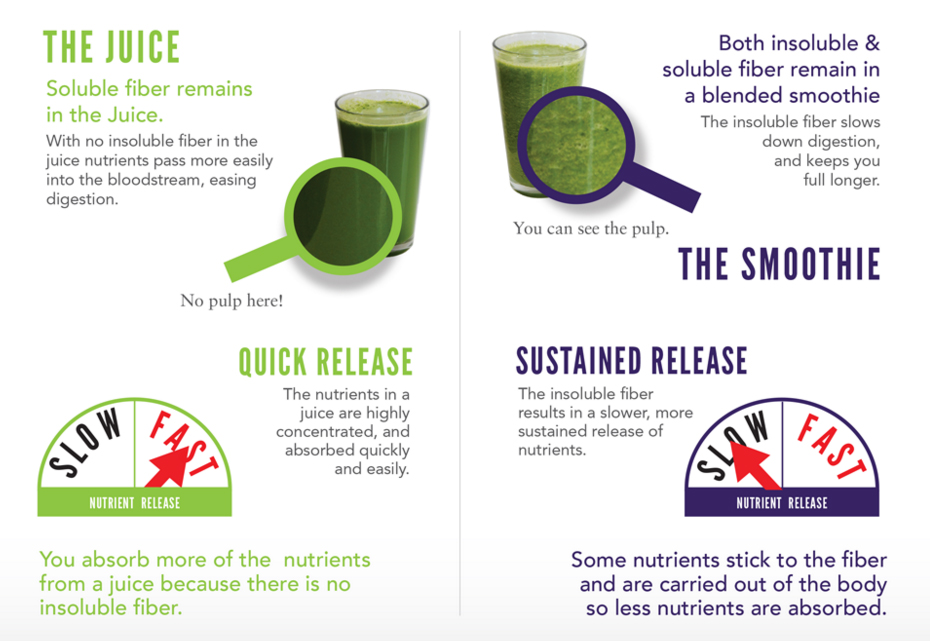Juicing is a popular practice among health-conscious individuals, but there is debate around whether or not it removes nutrients from the produce. This article will explore the pros and cons of juicing, and answer the question: Do juicers remove nutrients? We will examine the various types of juicers, the effect of heat and oxidation on nutrient loss, and look at the different ways to maximize the nutrient content of your juice. So, if you’re wondering if juicers remove nutrients, read on to find out!
Yes, juicers remove nutrients from fruits and vegetables. This is because juicers extract only the juice, leaving behind the pulp and fiber. The pulp and fiber contain the majority of the vitamins, minerals, and antioxidants that are found in fruits and vegetables. Juicing can still provide essential nutrients, but it is important to be aware of the nutrients that are lost in the process.
(No Html codes needed)
Do Juicers Remove Nutrients?
Juicing has become increasingly popular in recent years as a way to get more vitamins and minerals into our diets. But does juicing remove some of the nutrients from fruits and vegetables? This article will explore the impact that juicing has on the nutrient content of our foods.
What Is Juicing?
Juicing is the process of extracting juice from fruits and vegetables. This can be done with a blender, food processor, or special juicing machines. The juice that is extracted is a concentrated source of vitamins, minerals, and other beneficial compounds.
Does Juicing Remove Nutrients?
The short answer to this question is yes, juicing does remove some of the nutrients from fruits and vegetables. Nutrients such as fiber and certain vitamins and minerals are left behind in the pulp that is discarded after the juicing process. However, this does not mean that the juice loses all of its nutrients. Many of the beneficial compounds and antioxidants remain intact.
How Does Juicing Affect Nutrient Content?
The exact effect of juicing on the nutrient content of fruits and vegetables depends on the type of juicer used. Centrifugal juicers, which use a rapidly spinning blade to extract the juice, tend to be less efficient at extracting nutrients than masticating juicers, which use a slow, crushing action. However, both types of juicers retain much of the nutrients in the juice.
Are Juices Nutritious?
Yes, juices can be a nutritious part of a balanced diet. They are a concentrated source of vitamins, minerals, and other beneficial compounds, and can provide a quick and easy way to get more nutrients into our diets.
Are All Juices Created Equal?
No, not all juices are created equal. Some juices, such as those made with leafy greens, are especially high in vitamins and minerals. Other juices, such as those made with fruits, are higher in sugar and may not provide the same level of nutrition.
Are Juices Better Than Whole Fruits and Vegetables?
No, juices are not necessarily better than whole fruits and vegetables. While juices are a concentrated source of vitamins and minerals, they lack the fiber and other beneficial compounds found in whole fruits and vegetables. Therefore, it is best to include both juices and whole fruits and vegetables in a balanced diet.
What Are the Benefits of Juicing?
Juicing can provide many health benefits. It is a convenient way to get more vitamins and minerals into our diets, and it can help to improve digestion and reduce inflammation. Juicing can also help to detoxify the body, boost the immune system, and improve mental clarity.
Do Juices Have Any Downsides?
Yes, juices can have some downsides. Juices can be high in sugar, and they can cause an increase in blood sugar levels if consumed in excess. Additionally, juices are often expensive and can be time consuming to prepare.
Are Juices Safe?
Yes, juices are generally safe for most people to consume. However, people with certain medical conditions or allergies should speak to their doctor before drinking juices. Additionally, it is important to use clean, fresh ingredients when making juices to reduce the risk of food poisoning.
What Are the Best Fruits and Vegetables to Juice?
The best fruits and vegetables to juice are those that are high in vitamins and minerals. Leafy greens such as spinach, kale, and collards are especially nutritious, and other nutritious options include carrots, beets, apples, and oranges.
How Much Juice Should I Drink?
The amount of juice that should be consumed varies from person to person. A general guideline is to drink no more than one cup of juice per day. Additionally, it is important to remember that juice should not replace whole fruits and vegetables in the diet.
Frequently Asked Questions
Do Juicers Remove Nutrients?
Answer: Yes, juicers do remove some of the nutrients from the fruits and vegetables being juiced. When the produce is chopped and ground into smaller pieces, some of the nutrients are lost. This happens because the cells of the fruits and vegetables are broken down, which causes the nutrients to be released into the juice.
However, the amount of nutrients removed is not significant. The majority of the vitamins and minerals remain in the juice, and the juice can still provide a good amount of essential nutrients. Additionally, the juice can be consumed quickly and easily, so it provides a convenient way to get valuable nutrients into the diet.
Juicing vs Blending: What’s Better? – Explained by Dr.Berg
In conclusion, juicing can be great for getting more fresh fruits and veggies into your diet, but it’s important to be aware that juicing can also remove some of the beneficial nutrients and fiber. For this reason, it’s best to use juicing as a supplement to a healthy diet, and to incorporate whole fruits and vegetables whenever possible.



